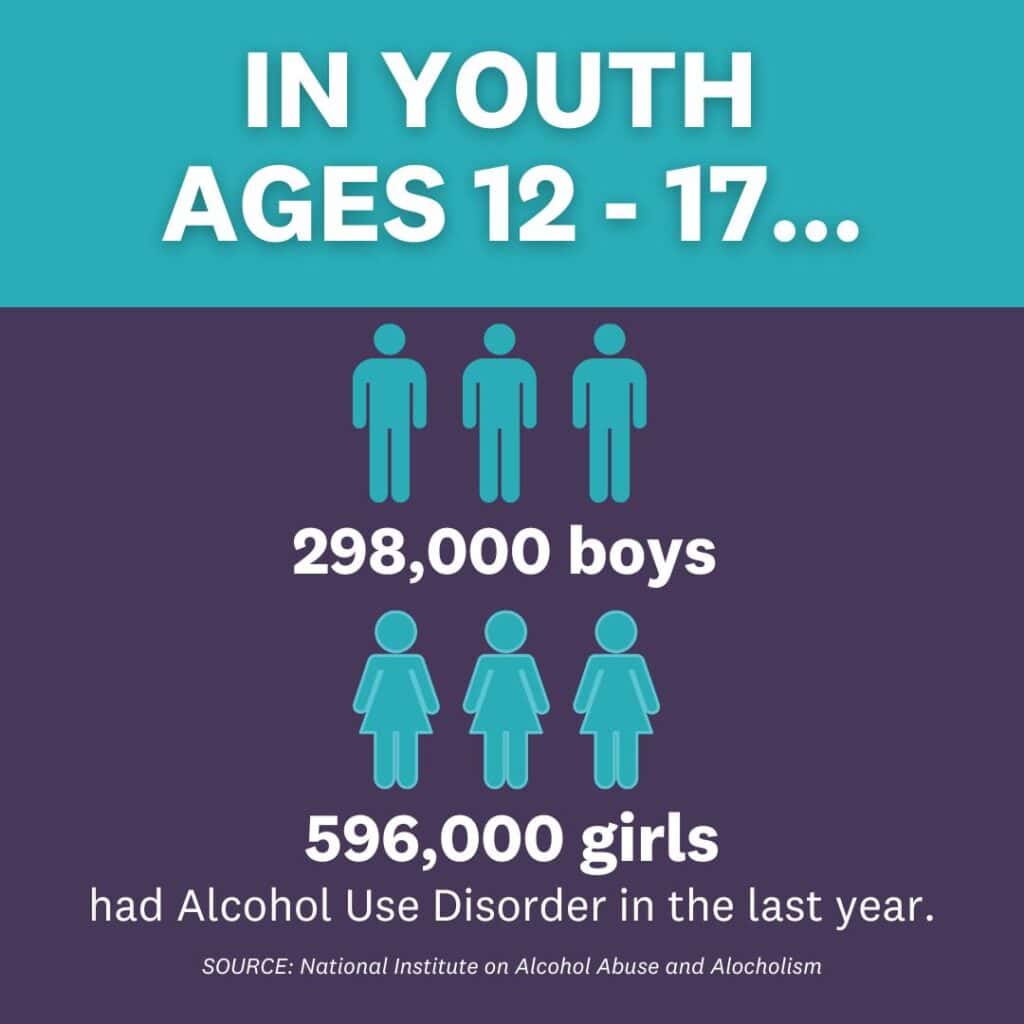If you have wondered whether it’s time to talk to your teen about substance use of any kind: it IS time. Not only does substance use or experimentation happen during the teen years, but it’s now exacerbated by stress and mental health challenges caused by the pandemic.
According to the 2023 Monitoring the Future study, it turns out that during the pandemic, teens and young adults were more likely to turn to substances when they were feeling extra stressed about all the uncertainty, dealing with depression or anxiety, facing financial difficulties in their families, or if their own parents were using alcohol or drugs. This is particularly interesting because, while parents might often point fingers at things like social media or peer influence, this study suggests that parents themselves can have a big impact on their kids’ behavior.
As for the numbers, the study found that adolescent drug use levels for the usual suspects stayed pretty consistent after the pandemic started. Cannabis use, for example, didn’t change much in the past year, with no clear increase or decrease across different age groups. Alcohol use among 12th graders was a bit lower in 2023 compared to 2021, though it had a slight bump in 2022. Eighth graders also showed slightly lower alcohol use in 2023 compared to 2021, while tenth graders saw a slight increase from 2021, but still much lower than before the pandemic hit.
No matter how good your relationship is with a young child, things change in the teen years. It’s the time your child begins to want both independence and control. Your family dynamics may have shifted – because of divorce, illness, or a move – and this suddenly creates communication barriers. Or, if there were other barriers to developing a good relationship with your child, it can be daunting to try to start a relationship in the teen years.
Take some time before you meet to decide what you hope both of you will get out of the conversation. Decide what you want to talk about, then organize your thoughts.

Be Prepared:
- Are you concerned? To start, communicate what you perceived, ask how you can help, and explain how and why you care. “I” statements are key here. Some possible openings include “I’ve noticed that you’ve been more anxious and closed off lately and I want to check in with you,” or “I love you and it’s important to me that you’re safe,” or “I’m sure your life can feel overwhelming at times,” or “I feel sad when you become closed off.”
- What’s the topic? You may have a specific substance issue to discuss, such as alcohol, marijuana, or prescription use. You may want your teen to agree they won’t use marijuana or alcohol until they are much older. Or, you might want to discuss what substances are of particular concern in your community, such as methamphetamines, heroin, fentanyl, or alcohol.
- Be clear and consistent about your expectations for your teen. What is most important for you as a parent? Do you want your teen to be properly educated about substance use? Do you want to make sure they know you’re a support? If you are consistent in your message and expectations, your conversations can be more effective and your teen can know what to expect from you. Parents who frequently “move the goalposts” can communicate a lack of consistency and availability as a reliable and understanding parent.
- Decide to parent without judgment. The truth is we really don’t have complete control over their choices — nor the outcome of his or her life. Before you talk to your teen, consider creating a “No Judgment” or “Amnesty” policy for your family. That means your teen can count on you for help or advice without fear, and you agree there will be no repercussions, judgment, or punishment.
- When listening and asking questions, it’s important to realize and honor how much your teen likely knows, or has learned. Our children have been bombarded with messages and information regarding their health (positive and negative, accurate or inaccurate) so they may know more than you think. If they mention something you don’t know or don’t know the validity of, ask follow-up questions in the spirit of learning more for yourself.
- It’s important to balance your role as a parent who is informed and has insight to offer with the need of your child to feel knowledgeable and understood. So, listen honestly and research new information together if you need to resolve a question or an issue.
- Be willing to take a break. These conversations aren’t always easy. The moment you feel like the conversation is going off the rails, propose a pause in the conversation and ask why. “I’m starting to feel like this conversation has taken a turn towards an argument. I’m sorry if I’ve contributed to that, but I think we should take a break and come back to this conversation when we’ve cooled down a bit. This conversation means a lot to me. Are you okay with that?” You can also introduce the idea of a code word when conflict starts in a conversation. One family uses “pickle” so that when things start getting heated or stalled. When things get heated, either person can say “pickle” to stop or take a break. Others use “oops/ouch” language, where anyone can say “oops” (or apologize) when something comes across wrong or if they misspoke, or say “ouch” when they feel hurt by something said. Whatever you choose, this can help your conversations to stay on the rails rather than escalate.

